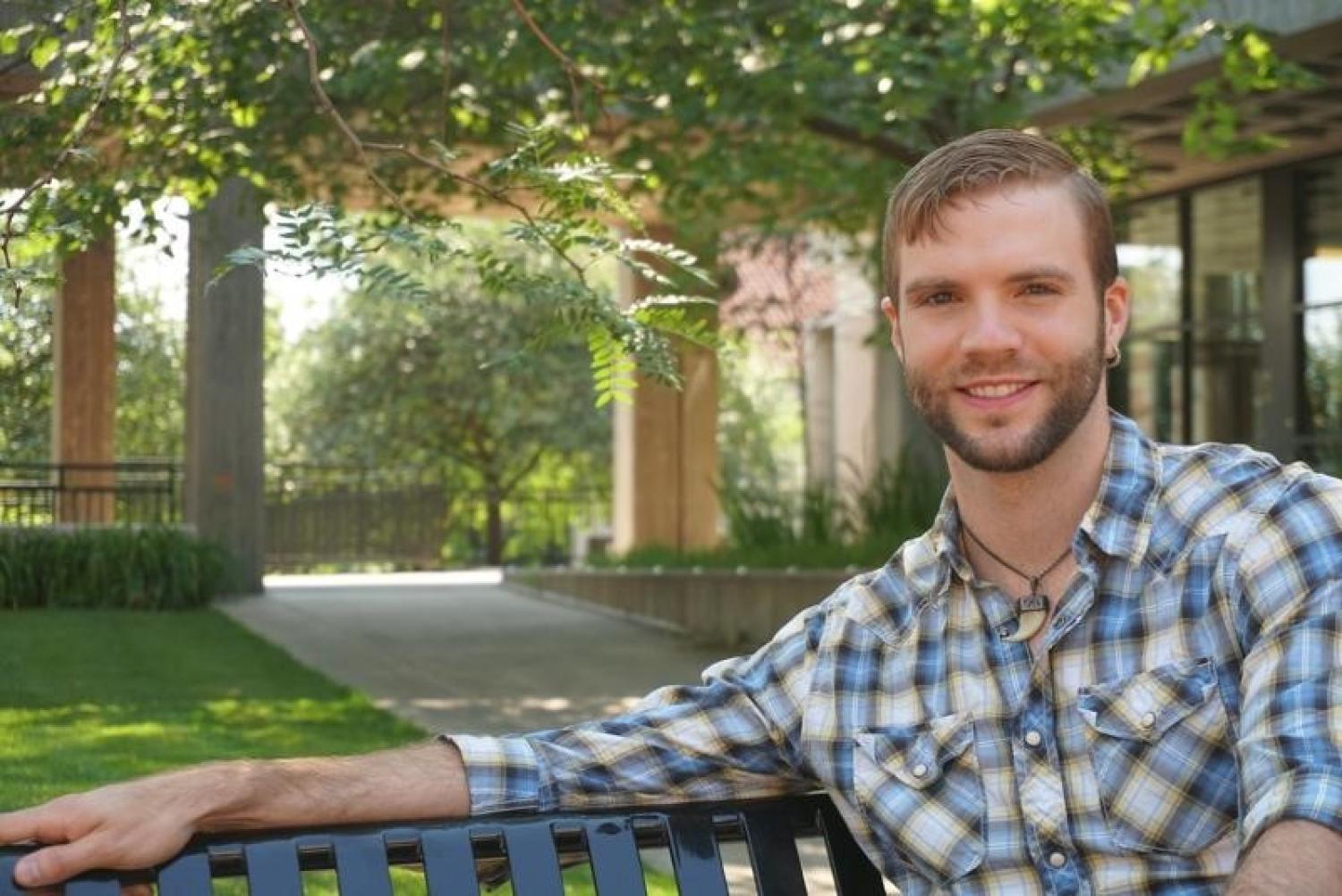"I realized I could help places such as Malawi by contributing to the green energy movement through research." - Joshua Brown

Name: Joshua Brown, PhD student
Hometown: Blantyre, Malawi
Laboratory:Shaheen Lab
My Path to Engineering
I grew up in the city of Blantyre, the second largest city in Malawi. In hind sight, I believe living in a third world country during my childhood gave me an appreciation for electricity, water and technology which I would probably otherwise have taken for granted. It was not until I grew a little older that I also began to appreciate the importance of trees. Malawi is a densely populated country with few natural resources, with firewood being the main source fuel source for the population. Consequentially, the country experienced significant deforestation during my childhood which would later guide me into my current field.
I have always had an interest and enjoyment for creating new things. My grandmother was convinced I was destined to become an architect and I gladly accepted that role at first. It was not until high school that I began to figure out where my natural strengths were. I took a design and technology class in which I took great enjoyment out of the hands-on wood and metal work. I excelled in the sciences, specifically physics and chemistry.
After high school I enrolled in Ouachita Baptist University in Arkadelphia, Arkansas, where I began studying physics. My mathematical skill set up to this point was modest at best. As I pursued my physics degree I quickly realized it was essentially … applied math. During my junior year, I hit a mental wall in calculus II. For some reason, I was unable to grasp the concepts. I went to tutoring, I did my homework outside the office of my mathematics professor, I even took an audio recorder to my classes and would replay the lectures. People are motivated by different things. At the end of the semester I had managed to scrape an acceptable C grade in the class. I suppose that it is my stubbornness that has given me the masochistic tendency to trudge headlong into theoretically complex concepts. I have continued to hit mental walls throughout my academic career, but reflection on my calculus II class has always served as a reminder that the proverbial “light at the end of the tunnel” does exist.
Part way through the middle of my master’s degree, I began reflecting on what I wanted to do with my education. Eventually, I came to the realization that I could help places such as Malawi by contributing to the green energy movement through research. I decided then that I would pursue a PhD in electrical engineering focused on the development of organic solar cells. I remain hopeful that one day my contributions will benefit resource poor regions of the world such as Malawi, by providing them with an alternative clean source of energy.
Currently, I am studying the electrical properties of organic photovoltaic devices through computational simulations. This is in the hope that we can develop cheap, flexible, green and efficient solar cells.
Why CU Boulder?
There are several reasons why I chose CU. Firstly, CU is in the state of Colorado, which is probably one of the best states to live in if you love the outdoors as much as my wife and I do. There is hiking, white water rafting, great bike trails, skiing and climbing. There is so much natural beauty, and the backdrop of CU campus provides a glimpse of what fills the rest of the state. Having lived in Arkansas and Louisiana during my master's and bachelor'sm the dry mountain air also provides a welcome respite from the South’s high humidity.
Academically, the university itself was and remains ranked highly in many of the science and engineering categories and boasts several Nobel Prize laureates. Another factor that played into my desire to attend CU was the ability to work on solar energy. Along with the nearness of NREL, I found a group at CU working on solar materials in the Shaheen lab, which were strong positive motives for my selection of CU.
Furthermore, in terms of careers after graduation, the Denver and Boulder metropolis was and is becoming a tech hub in the middle of the country. This provided me with the hope that I could network within the state to find a suitable career upon graduation. It is also worth mentioning, that the state hosts several national labs with which the university has strong ties: NIST, NOAA, NCAR and NREL. These labs represent an opportunity to continue to pursue a career in research upon graduation outside of industry.
There are several things that I love about CU. There are some truly great professors who work here, and it is a pleasure to interact with them and pick their brains for nuggets of knowledge. I have found many of the faculty friendly and helpful, which has been essential during the course of my education here. The ECEE department also hosts some amazing staff such as Graduate Program Advisor Adam Sadoff who is a great student advocate and extremely welcoming. Furthermore, the facilities are constantly being updated and new buildings are continually being built. For my group, this has translated to a move from main campus to east campus where we were given a new lab with a state of the art setup and refurbished office space. The university also hosts some great recreational facilities, in the past I have greatly enjoyed downtime playing frisbee on the well-manicured lawns with a graduate student frisbee group dubbed the “Fainting Goats”.

